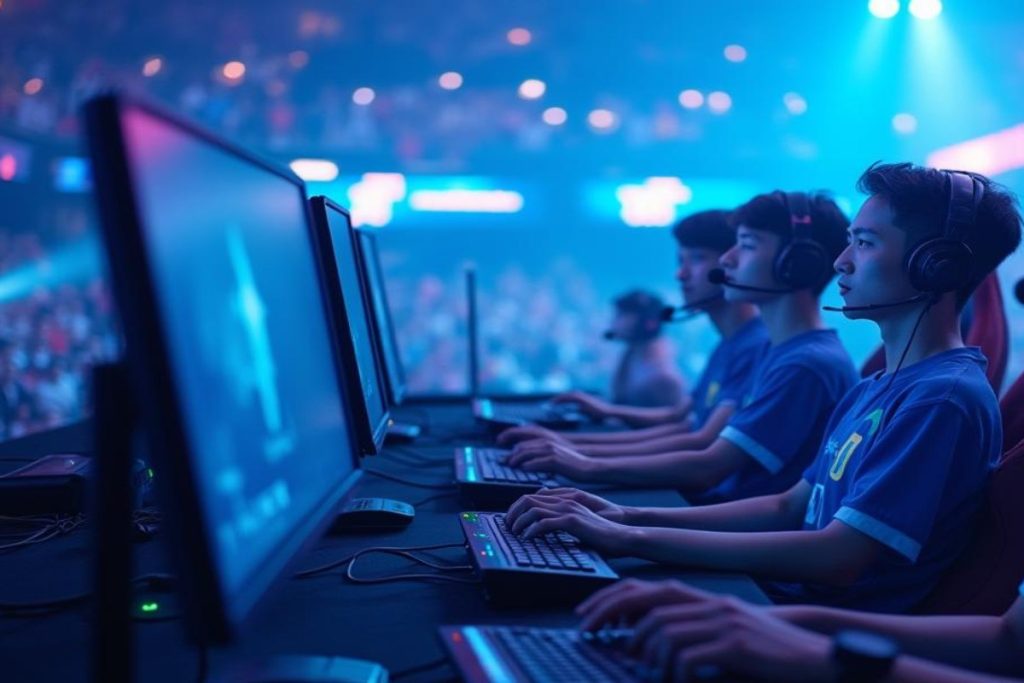In the realm of gaming, soundtracks play a pivotal role in shaping the overall player experience. The term How Game Soundtracks Influence Player Experience encapsulates the profound impact that music and sound design have on immersion, emotional engagement, and narrative depth. From the haunting melodies that accompany a character’s journey to the adrenaline-pumping scores during intense battles, soundtracks are not merely background noise; they are integral to the storytelling and emotional resonance of a game.
As you delve deeper into this article, you will discover the various ways in which soundtracks enhance gameplay. We will explore how different musical genres can evoke specific emotions, creating a more immersive environment for players. Additionally, we will examine case studies of iconic games where soundtracks have significantly influenced player reactions and experiences. By understanding these dynamics, you will gain insight into the artistry behind game soundtracks and their essential role in modern gaming.
Furthermore, we will discuss the psychological effects of music on players, including how soundtracks can alter perceptions of time and space within a game. This exploration will not only highlight the technical aspects of sound design but also the emotional connections that players forge through music. So, if you’re curious about the unseen forces that elevate your gaming experience, continue reading to uncover the fascinating relationship between soundtracks and player engagement.
The Emotional Impact of Music in Gaming
Game soundtracks play a crucial role in shaping the emotional landscape of a player’s experience. Music can evoke a wide range of feelings, from excitement and joy to fear and sadness. By carefully selecting musical themes that align with the game’s narrative, developers can enhance the player’s emotional engagement. For instance, a suspenseful score can heighten tension during critical moments, making players feel more invested in the outcome of their actions.
Moreover, the use of leitmotifs—recurring musical themes associated with specific characters or events—can deepen the player’s connection to the story. When players hear a familiar melody, it can trigger memories and emotions tied to previous experiences in the game, reinforcing their attachment to the narrative and characters. This emotional resonance is a powerful tool that can significantly influence how players perceive and enjoy the game.
Enhancing Immersion Through Sound Design
Soundtracks are not just about melodies; they are integral to the overall sound design of a game. A well-crafted soundtrack can create a rich auditory environment that immerses players in the game world. By blending music with ambient sounds and sound effects, developers can create a cohesive audio experience that draws players deeper into the narrative. For example, the combination of a haunting score with the sounds of rustling leaves or distant thunder can evoke a sense of place and atmosphere that enhances immersion.
Additionally, dynamic soundtracks that adapt to gameplay can further enhance immersion. Games that change the music based on player actions or in-game events create a responsive environment that feels alive. This interactivity not only keeps players engaged but also reinforces the emotional stakes of their decisions, making the gameplay experience more impactful.
The Role of Cultural Context in Game Music
Cultural context plays a significant role in how players perceive and respond to game soundtracks. Music that resonates with a player’s cultural background can enhance their connection to the game. For instance, incorporating traditional instruments or musical styles from a specific culture can create a sense of authenticity and relatability. This cultural relevance can make the game more appealing to diverse audiences and enrich the overall experience.
Moreover, understanding the cultural significance of certain musical elements can help developers craft soundtracks that resonate on a deeper level. For example, using specific scales or rhythms that are culturally significant can evoke particular emotions or memories, further enhancing the player’s engagement with the game. This thoughtful approach to music composition can lead to a more inclusive and enriching gaming experience.
The Psychological Effects of Game Music
The psychological effects of music in gaming are profound and multifaceted. Research has shown that music can influence cognitive processes, such as attention and memory, which are crucial for gameplay. A well-composed soundtrack can help players focus, improve their performance, and even enhance their problem-solving abilities. For instance, fast-paced music can increase adrenaline and motivation during action sequences, while slower, more melodic tunes can aid concentration during puzzle-solving segments.
Furthermore, the psychological impact of music extends to player behavior. Soundtracks can create a sense of urgency or calmness, influencing how players approach challenges. By understanding these psychological effects, developers can strategically design soundtracks that align with gameplay mechanics, ultimately enhancing the overall player experience.
The Evolution of Game Soundtracks: From 8-Bit to Orchestral Scores
The evolution of game soundtracks reflects the technological advancements in the gaming industry. From the simple 8-bit melodies of early video games to the complex orchestral scores of modern titles, the progression of game music has been remarkable. Early soundtracks were limited by hardware capabilities, leading to creative compositions that became iconic in their own right. Today, advancements in technology allow for rich, layered soundscapes that can rival film scores.
This evolution has also changed player expectations. Modern gamers often seek immersive experiences that include high-quality soundtracks, and developers are responding by investing in professional composers and orchestras. This shift not only enhances the gaming experience but also elevates the status of game music as a legitimate art form, further influencing how players engage with and appreciate the medium.
| Aspect | Description |
|---|---|
| Emotional Engagement | Game soundtracks enhance emotional responses, helping players connect with characters and storylines on a deeper level. |
| Atmosphere Creation | Music sets the tone and atmosphere of the game, influencing the player’s mood and immersion in the game world. |
| Gameplay Dynamics | Soundtracks can signal changes in gameplay, such as transitions between levels or the approach of a challenge, guiding player actions. |
| Memory and Nostalgia | Familiar soundtracks can evoke nostalgia, enhancing the overall experience and making the game more memorable. |
| Player Motivation | Dynamic music can motivate players, increasing their engagement and encouraging them to continue playing. |
| Competitive Edge | In competitive games, soundtracks can create a sense of urgency and excitement, impacting player performance and focus. |



